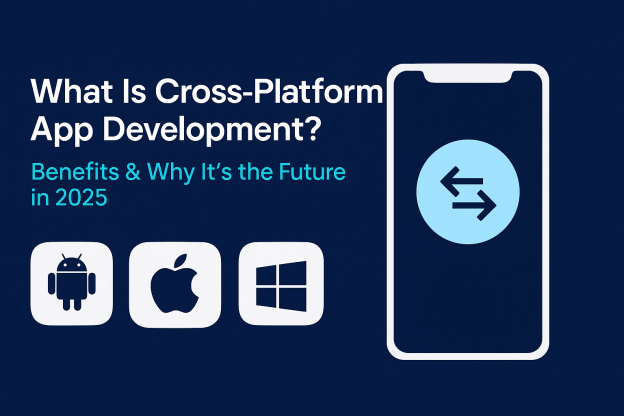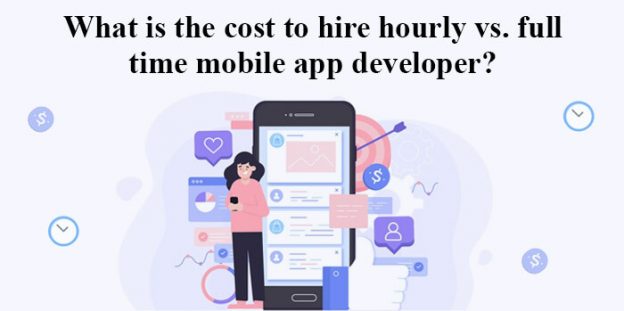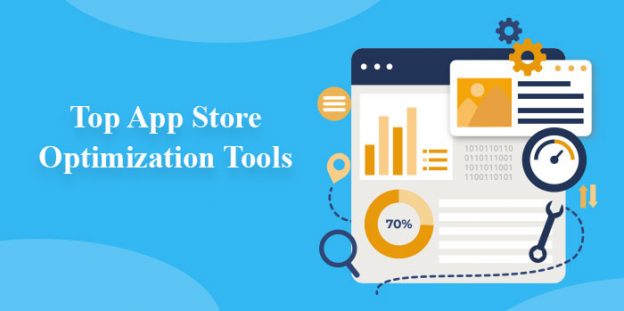What Is Cross Platform? Is It The Best Choice For Mobile App Development?

The global mobile app development industry has grown rapidly in recent years. With mobility becoming a critical aspect of the digital economy, businesses are increasingly focusing on building apps to engage users and generate revenue.
Mobile applications serve as powerful tools for brand awareness and customer interaction. However, users are scattered across various platforms—primarily Android, iOS, and sometimes Windows. Developing native apps separately for each platform can be time-consuming and expensive. That’s where cross-platform mobile app development comes into play.
What Is a Cross-Platform App?
A cross-platform app is designed to work seamlessly on multiple mobile operating systems using a single codebase. Instead of building separate apps for Android and iOS, developers can create one app that functions across both platforms.
Cross-platform development frameworks like React Native, Flutter, Xamarin, and PhoneGap make this possible. These tools help developers write shared code that can be compiled for different platforms, saving time, cost, and effort.
Benefits of Cross-Platform Applications
Cross-platform apps offer numerous benefits to both developers and business owners. Let’s explore how.
Advantages for Developers
-
Faster Development Time
Cross-platform apps are developed faster than native apps since only one codebase is required. This allows quicker time-to-market and reduced overall development cost. -
Code Reusability
One of the biggest strengths of cross-platform development is that the same code can be reused across different platforms. This enhances productivity and efficiency. -
Plugin Accessibility
Frameworks like PhoneGap, Rhomobile, and others allow easy access to useful plugins. These plugins simplify the integration of features like geolocation, push notifications, and social media sharing. -
Cloud Integration
Cross-platform apps are easy to integrate with cloud services, making data management and app performance more scalable and secure.
Advantages for Business Owners
-
Uniform User Experience
Cross-platform apps deliver a consistent user experience across all platforms. Whether your users are on iOS or Android, they get the same interface and features. -
Shorter Development Cycle
By using a single codebase, businesses save time on coding, testing, and launching the app, allowing faster entry into the market. -
Cost-Effective Development
Unlike native development, which requires building separate apps for different platforms, cross-platform development significantly reduces costs by requiring only one app. -
Wider Audience Reach
Since the app runs on both iOS and Android, your business can reach a larger and more diverse user base without extra development efforts. -
Low Maintenance Costs
App maintenance is simpler and more affordable with a single codebase. Frequent updates or bug fixes can be deployed across all platforms simultaneously.
Is Cross-Platform the Best Choice?
For most businesses—especially startups and small to mid-sized enterprises—yes, cross-platform development offers an optimal balance of speed, cost, and reach.
However, if your app requires highly specialized functions, advanced hardware integration, or extremely high performance (like in 3D games), native development might still be a better option.
Final Thoughts
Cross-platform mobile apps have revolutionized how businesses approach app development. They reduce costs, simplify maintenance, and allow businesses to target both Android and iOS users simultaneously. With the increasing popularity of frameworks like Flutter and React Native, cross-platform development is fast becoming the preferred approach for modern mobile apps.
If you’re looking to build a powerful, scalable, and cost-efficient mobile app, VerveLogic can help. Our expert developers specialize in cross-platform app development to help businesses achieve success in the digital world.
FAQs: Cross-Platform App Development
1. What is the difference between cross-platform and native app development?
Cross-platform apps use a single codebase to run on multiple platforms, while native apps are built separately for each platform (Android or iOS) using different programming languages.
2. Which is better: cross-platform or native development?
It depends on your app goals. If speed, cost-efficiency, and broader reach are priorities, cross-platform is better. If you need advanced performance and platform-specific features, native is ideal.
3. Which frameworks are best for cross-platform development?
Popular frameworks include Flutter, React Native, Xamarin, and PhoneGap. Each has its strengths depending on your project needs.
4. Can I migrate my native app to a cross-platform app?
Yes. You can rebuild your native app using a cross-platform framework by rewriting the UI and logic to be compatible across platforms.
5. Is cross-platform development secure?
Absolutely. Like native apps, cross-platform apps can be built using secure coding practices and integrated with robust backend security systems.






